 “If everyone is moving forward together, then success takes care of itself.” (Henry Ford) This time last week, it was lift-off for the SWIFT 2024 Summer Conference at the new venue of the Future Skills Centre in Exeter. Hosted by Executive Director, Martin Director and Jen Knowles, Director of Teaching School Hubs, delegates fastened their seatbelts for what was to be a supersonic day. Education South West (ESW) CEO, Matthew Shanks’ welcome set the tone for the conference in considering the current challenges and key themes for schools and leaders - with a call to action for collaboration across schools in the South West. “Our job is to help every single child.” Matthew reflected how alas, the system is not currently built for collaboration due to disincentivizing league tables and a lack of support and funding for children’s services. However, with ESW the lead Trust for the Kingsbridge Teaching School Hub, Matthew echoed the SWIFT ethos of selfless collaboration that helps to make a better society and fulfils our vision of creating high-quality opportunities for staff to learn, develop and connect. So that all children, especially the disadvantaged, achieve the best educational outcomes. After the fantastic first three years as Teaching School Hubs, the statistics are splendid to behold. 3,295 teachers and leaders have engaged in over 80,000 hours of training with SWIFT that importantly, practicably, and hearteningly has a direct impact on the quality of education and lives of young people in South West schools. And the good news is that SWIFT is committed to building on this successful support.  On that stirring note, the first keynote speaker took to the stage. Presenting on “Why nice isn’t working: why relational currency supports positive behaviour,” teacher, behaviour specialist, author, education reformer and advisor, Paul Dix began by sharing his own experience as a 24-year-old teacher. Re-living the case of the humbling home visit to his pupil, Robert; Paul recounted the discovery of his positive notes that Robert had previously crumpled up (and Paul assumed to have been thrown away) and yet were pinned-up on Robert’s bedroom wall, in an otherwise nearly empty home. Heart-rendering. In a talk that was entertaining and energising with visual props, Paul highlighted the importance of relationships being predictable, systematic, consistent and habitual. Think of the primary children who slipped happily into the habit of shaking the hand of their teacher every morning on arrival into class and who were disappointed when she suddenly stopped this hands-on habit. Such was this happy habit, even parents came into school to shake the teacher’s hand as well. Relational practice begins with the easy actions. The positive noticing, in a pure and nuanced way and it is this emotional currency that leads to trusting relationships. “There’s no teacher in the world who doesn’t know the power of positive noticing.” In an endearing peer-to-peer relationship-building story, Paul shared the example of the school who gave all their Year 8 pupils a brown postal label. With echoes of much-loved national treasure, Paddington Bear, the pupils were all invited to write something nice about each other on the label, which they then swapped and tied onto their bag or tie. Instead of teen uneasiness, these positive peer labels stayed visibly tied on for a long time. Get your labels ready, and make a date in your diary on Wednesday 13 November 2024 for Positive Noticing Day to celebrate in your schools and organisations. By looking at the behaviour of adults first, this starts the change. It can be hard work to do the right thing and some people might prefer the easier route. But as Paul reminded us, it is the children who suffer when adults take the easy route and ultimately, scripted intervention does not work. Clear away the bindweed! Remember the leadership gauge of what you are doing, the why and the priorities. Paul invited delegates to consider three behaviours that work with children and the suggestions were uplifting. Smiling, clarity, resetting, listening, curiosity, emotional acceleration. Hands kept popping up. Be ready, respectful and safe and know that consistency is worth fighting for and understand how you define this consistency. Knowing adults will listen and knowing there will be a positive response is essential. In terms of implementing relational practice and bringing the whole school together, Paul compared the tortoise and the hare leaders. The hare leaders could lead a two-minutes pupil spotlight in staff meetings where colleagues with the best knowledge present a 360 view on individual pupils to provide and show how the child learns best and gather strategies from other members of staff. A bank of small spotlights builds up, and is a practical way before going into the classroom to equip all teachers with strategies, even if they do not teach a specific child, it helps to build relational practice across the school. Another top tip was the use of termly Threads that state three rules to start a whole school conversation to encourage commitment from both staff and students, that builds each half term on the previous Thread. In a memorable film clip, Paul showed the young football team standing stoically in the rain and how one-by-one in an image of wraparound love and care, each teacher put their own jacket around the child in front of them to protect them from the rain. Back to the hare and the tortoise, the slower of the duo builds their knowledge before making changes, with high-quality flexible training and then drip feeds strategies each half term. In other words, there is a place for both the hare and tortoise.  SWIFT works with select sponsors who provide a range of educational services to help boost our high-quality professional development offer to schools. As the first of the two conference sponsors, Vice President, Matt Tiplin introduced ONVU Learning: deep thinkers of teaching and learning translated into classroom technology. Teachers are empowered to review their own practice to provide a better methodology by outcome and with his own story as a past teacher, Matt invited the audience to remember a good teacher from their own life. Find out more about ONVU Learning at the FREE Excellent Teachers Create Excellent Memories webinar on Thursday 11 July 2024 from 0830 – 0900.  Delegates could then choose one of two morning breakout sessions. Associate Professor at the University of Warwick, Institute for Employment Research (IER) and Founding Director of CareerChat (UK) Ltd, Deirdre Hughes OBE led the session on “Leading with Vision: transforming education for tomorrow’s workforce.” Leadership, is an opportunity to make a difference as transformational leadership. Even if there is no single way to transform the educational system, it is a line of sight to work. Otherwise, divisions can widen. Deirdre encouraged leaders to find the value in understanding the relevance of education in our fast-changing world of work with spiralling issues, such as multiculturalism and wellbeing. Find personal development for decisions and pathways and changing attitudes to the workforce for life-long learning and ways to inspire amidst the uncertainty and change. Learn collaboratively with a commitment to projects and how to develop skills for the future. Consider changes to relaxing the curriculum to foster flexibility and see the relevance of learning. With her background expertise in career guidance, Deirdre noted the value of rooting career development into the curriculum and bringing employers into the classroom. Education is no longer only about didactic teaching; but rather about learning through collaborative, experimental, and community-based projects that address issues about which students care deeply. There is a need for places and spaces where parents see the relevance and want to help the children in their care and to personalise the learning experience with digital tech. But what can AI do for us to help us to do together? “The need for education is to prioritise what it means to be human.” Find out about CareerChat (uk) at the FREE Intelligence Revolution and How We Can Help Young People Prepare for a Transformed World of Work webinar on Thursday 4 July 2024 from 1400 – 1530.  Former Chair of Children and Young People’s Mental Health Coalition, and author of “The Mentally Healthy Schools Workbook,” Dr Pooky Knightsmith led the other breakout session on “A Whole School Approach to Mental Health.” Pooky outlined the following six areas of focus in schools with lots of helpful tips and invited the audience to consider where they fit on a scale of 1-10: 1. Staff are Happy and Healthy If schools do not get it right for staff, it is challenging to get it right for children and community. Leaders are role models and look after themselves first as children learn from what they see adults seeing and doing and sustainable change must have staff at its heart. Happy staff feel heard: their opinions matter, whatever their background and diversity. Happy staff are mentally and physically healthy. Think about small changes to ensure staff get fresh air, access to healthy food, have time to eat. Think how you acknowledge teachers' workload. Mastery is every member of staff turning up to do their job and do it well, which in turns supports their wellbeing. Passion will make the difference in our job and help to connect with colleagues. Look beyond Ofsted and ticking boxes. 2. Our Setting Feels Safe and Welcoming The biggest difference to support a child is a calm adult. Meet children with a smile. Walk through your school in the shoes of a stranger and be honest about all the things you see/feel/hear/smell. Children need to know their school is safe place. Make your school a calm environment that meets the needs of neuro-divergent children. Be predictable. Meet the needs of all children and look out for the quiet students too. Be brave to share when things do not go quite right. Be an authentic and brave leader. 3. Every Learner Feels Heard Think how you hear the quiet voices and the angry voices. Think about inclusion and diversity and any groups who are missed out. Think how you listen and how to help those children who are reluctant to put their hands up. 4. We Recognise and Support Our Most Vulnerable Learners Work with the child, not for them. Hear their ideas and think how you can support them. Quality first teaching. Think how you get your classroom to be engaging, exciting and accessible for all learners and what universal approaches can be in place. All staff ‘keep a child in mind’ on rotation and ensure each child has at least one trusted adult. Let them choose and be led by them. 5. Families Positively Engage Parenting is hard. Have high expectations of parents and if they do not live up to them, question what we are doing that is letting them down. Make sure you use their time well. Be approachable: see parents as people and humans. Use their names, ask connecting questions, share good news with homes not used to hearing it. Think what you can do tomorrow to make a difference. 6. Help is Sought When Needed Show children there are no barriers. Celebrate and role model help -seeking and problem solving.  Educational journalist, former teacher, and co-founder of Teacher Tapp, Laura McInerney presented the next keynote on “Education Trends.” It was Laura’s form tutor and Teacher of French, Miss Watson who inspired her to become a teacher; noting that the best teacher gets you an A*, even when you do not necessarily like the subject. It was Miss Watson who brought a newspaper article into school on Laura’s favourite author, Terry Pratchett and her positive noticing made Laura want to be a Miss Watson - and she has followed her example ever since in always wearing a jacket. Ten years ago, Laura’s yellow jacket (plus yellow six-inch heels) had a special outing when she was taken to court by Michael Gove and Dominic Cummings for being "vexatious" about a Freedom of Information Act request on the hot topic of free schools. (A longer and highly entertaining court case story cut short, it ended well for Laura). Teacher Tapp came about from Laura’s editorials in Schools Week based on discussions on a minority of teachers and schools. In 2017, Laura combined forces with Professor Becky Allen who wanted to survey teachers to gather data and the dynamic duo created the highly popular and successful Teacher Tapp. Signed-up teachers are sent daily questions that gather data and help to stop misinformation and spot trends. One of the most controversial questions, would you believe, is whether the school provides free tea, coffee and milk. Turning to another popular conversation topic for us all, the weather, Laura related her own experiences of living in Michigan, part of Tornado Alley. Unlike the UK, where the weather stops play, and people get angry, in the USA, everyone stays at home and does not get angry. The same could be said of reactions to education policy. When the weather turns stormy, we need to change the response, and seek shelter until it has passed. There is no point shouting! With her evident instincts for spotting trends, Laura considered some of the big challenges in education with simple causes. Consider recruitment and retention as a familiar educational trend. Teaching is not any less good, but there are basic challenges. Fewer 22-year-olds are joining the profession, and are not offsetting those exiting the workforce. Hence lots of squeezing on teacher numbers. Consider the high number of 12 – 13-year-olds coming through to secondary, and increasing pressures on schools with increasing behaviour issues and levels of complexity. Whereas at primary, pupil numbers are falling over the next 10 years. The recruitment of Teaching Assistants, Receptionists and other administrative staff needs a re-think due to societal progress. To date, these low-paying roles have been taken by women who needed term-time work. But as the employment market is changing, this trend is also changing as there is more career choice. Vexatious complaints about schools are rising because there are more children, medical advances, Education, Health and Care Plans (EHCPs) have been de-stigmatised and Local Authorities have been given responsibility for 19 – 25-year-olds. There has been the shift in parental expectations from this educated parent group with a louder outcry. Schools cannot change this, but need to have the response and robust communications and complaints processes in place. Looking to the future, Laura looked to the past and reflected on former Education Secretary, George Tomlinson in post after World War II from 1948 and 1951. Facing bombed schools, a high baby boom in 1946 and no university graduates in his inbox, he made the decision to raise the school leaving age. It was considered outrageous. Not least from an Education Secretary who had not attended secondary school. However, it was a timely reminder to us all with the shared purpose to provide an education for all children and young people. The metaphorical tornadoes are coming, and it is for schools to try and work out the response. After that insightful weather warning, SWIFT Delivery Partner at Tarka Trust, Andy Ogden introduced the benefits of SWIFT Membership and highlighted the value of professional development as an investment in staff and the school. Further to the questionnaire to schools at the end of last year, in the next school year, new programmes on offer will be directly related to feedback from colleagues. New Professional Communities will be an opportunity for teachers to access a network in their phase/subject to support their development. Paul Dix and Tara Ellie will also be leading a session on “When the Adults Change – Behaviours Change.”  Looking to support teacher recruitment within the South West, this year, SWIFT has been working with Exeter Consortium/South West Teacher Training, Plymouth Marjon University, SWIFT Teacher Training and the University of Exeter on an Initial Teacher Training (ITT) Area Strategy. The initiative requires all Teaching School Hubs (TSHs) to deliver new strategic roles to support local ITT delivery across their area as an important regional role working with schools and accredited ITT providers to understand the local market, context and challenges. TSHs can also offer information and support to schools who wish to engage in ITT for the first time or to increase their engagement in ITT. Led by the ITT Strategy Team, Andy Ogden, Fiona Bosley and Matthew Wharf who are working together to develop a collaborative ITT Strategy to support the next generation of teachers. This year SWIFT has been evolving our Diversity, Equity and Inclusion (DEI) endeavours so that it is intentional and integral to all that we do. Further to an advert to schools and partners earlier in the year appealing for volunteers from all backgrounds who wished to connect their experience and enthusiasm for DEI, the Diversity, Equity and Inclusion Partnership Group was born. Krisha Gandhi, Caroline Leigh and Tom Pether attended from the Group and shared how their work is shaping up.  The trio shared their own stories as a person of colour, a working mother and a white middle class male and encouraged the audience to think about their own school cultures and any unconscious bias. Through their Theory of Change the Group intend to share best practice and research, provide relevant and inclusive training and proactively listen to diverse viewpoints across our region to foster a sense of belonging that will be felt by our communities and there will be supportive connections, sustainable choices and opportunities for all. If you would like to find out more and/or get involved, the Diversity, Equity and Inclusion Partnership Group would like to hear from you. Our very own Roger Dimbleby (Pope) led Question Time with questions including what priorities would panellists propose for the new Education Secretary on Friday 5 July 2024; what would creativity in the curriculum look like, and whether there is a future for written exams (expanded to writing in schools). The final question: What gives you optimism for the future of education, certainly maintained the momentum of the conference with panellists celebrating schools and Trusts coming together to work through challenges, schools as relational places, overcommunicating the positives messages, sharing joy, talking to families and believing in staff who care. Continuing the caring theme, second conference sponsor, Goosemoor Educatering, Head of Educatering, Rob Stevens whet our appetites for the lunch feast that was the follow with an introduction to their bespoke food service for schools. Rob told how he was leading an onboarding session at a school and a child asked her mother if the food tasting was free. Speaking from the heart, Rob shared his pride in how good food makes a difference to all families and knowing children are going home “with full bellies.” Not dissimilarly, conference delegates were to go home having eaten a delicious lunch and we are grateful to Goosemoor Educatering for a feast.  The first of the afternoon breakout sessions was led by Chief Executive, Paul James and Director of Inclusion, Katherine Walsh at the River Learning Trust on “Leading Inclusion: What works?” The River Learning Trust spans big secondary schools to small primary schools in a high pupil premium area with complex learning and disability needs. The Trust have aligned autonomy, but are not “a cookie cutter Trust” as that would not be a good fit for the diversity of their schools. Paul's first top tip would be the immediate appointment of a Director of Inclusion as the impact for their Trust over three years has been immense, and working on six key areas.  An increasing number of children have special needs. 52% who have EHCPs are in mainstream education, and year-on-year there is a 1% increase of children with SEND in mainstream schools. This brings inevitable challenges. It is important firstly, to boost staff confidence and to support teachers to develop this confidence and secondly, to distribute leadership as the SENDCO cannot be the font of all knowledge. Rather than the SENCO leading all parent meetings, the Form Tutors can also lead and who has a holistic overview of the child and consider how Teaching Assistants are deployed. The Trust have an Inclusion Strategy that is built on knowing schools well and understanding the school context. The Education Endowment Foundation makes the following five key recommendations to meet the needs of children with SEND: 1. Create a positive and supportive environment for all pupils without exception. 2. Build an ongoing, holistic understanding of your pupils and their needs. 3. Ensure all pupils have access to high quality teaching. 4. Complement high quality teaching with carefully selected small-group and one-to-one interventions. 5. Work effectively with Teaching Assistants. There is no magic SENDCO tree. We have to make it a motivating, engaging and wonderful job as a role that can make a huge difference. SENDCOS can move into Headship as SEND runs through all we do.
Be prepared to do things differently. Walk into lessons and think ‘which child is this lesson not working for.’  The second afternoon breakout session was led by CEO of The Woodland Academy Trust, Nav Sanghara on “The Art of Compassionate Leadership.” “It is important to be a kind leader. But it is also important to focus on execution and do hard things. This is about how to do hard things in a human way.” (Raasmus Houggard) In a talk that was infused with wise and wonderful mantras, Nav considered what compassionate leadership looks like. Leaders need to be kind to themselves in the first instance so that they bring energy into their leadership. There is value in knowing and overcommunicating your purpose and redefining and re-evaluating this purpose. With a calm tried and tested wisdom, Nav encouraged leaders to have a core principle and to live by your values that drives actions and decision-making and connects with your organisation. Model these values to children and staff. “Who we are is who we lead.” Psychologically safe teams have real and open conversations. Build one culture and trust together with equity and collaboration and understand the shared vision as a promise to staff and children. It is not always possible to be excited and energised, but good habits can help to live life better. Challenge is to be celebrated and accepted and establish good structures and systems to provide time to pause and respond. As a clarion call for the conference, Nav highlighted how true belonging is where space is created to come as you are and celebrating others to do the same and to see the good in others in your community. To demonstrate a living example of compassionate leadership, Nav shared a video from the School Under the Bridge in Delhi founded by Rajesh Kumar for children from poor families who cannot afford to send them to school. Seeing is believing.  The final keynote speaker was to end the conference on a moving high. For nine years Chris Lubbe was Nelson Mandela’s bodyguard after a chance meeting and a five-minute interview, followed by a gruelling six months training with the SAS. Speaking on “My Journey from Apartheid to Truth and Reconciliation,” the audience listened intently as Chris shared his first-hand story of working closely with the revered Nelson Mandela. It was a way for us to feel close to the brave leader who devoted his life to bring apartheid to an end in 1994. Chris spoke with a heart-stopping serenity bringing to life the Nelson who did not believe in black and white; who showed no anger for his imprisonment and maltreatment; but with an enduring charisma and belief in forgiveness as the key to freedom, he reached out to bring everyone together. As his boss and mentor, Chris recounted how Nelson once told him to write down all the angry things in his heart and then told him to put the pieces of paper onto the fire to burn. Describing his own upbringing in a shanty town, finding thrown-away books to read in the local dump, the two-tier education system and segregated beaches with demeaning signage to match. The stories flowed with a serenity that comes from an inner peace perhaps, and the courageous re-telling. Yet the horrors of the police still sent shivers down our spines. Eight-year-old Chris witnessed the shocking treatment of his diabetic mother taken ill on the bus and pushed off a WHITES ONLY bench by the police that led to three months in hospital in a coma and a long recovery. As a child, Chris bought a map of the world and once a month he wrote to world leaders to ask for their help – including our very own late Queen. Chris was angry, but wanted to do something to inspire peaceful change. As a young man, alongside anti-apartheid and human rights activist, Archbishop Desmond Tutu, Chris stood tall as a peaceful protester, even when it led to arrests and imprisonment and torture. Terrible times. Fast forward to working for Nelson, there were however, moments of glamour. Chris met many celebrities during his time with Nelson – including the Spice Girls who were most miffed when Chris pretended not to know who they were (on the advice of his boss!). But it was at a dinner with the Queen that reminded me of many of the values shared at the conference of hope, compassion and collaboration. A silver platter was presented to Chris. Inside, the envelope was another envelope and inside that envelope was Chris's letter to the Queen that he had written as a boy. A faithful letter writer, the Queen had replied to him, as well as writing regularly to other world leaders for their support. The South African authorities had obviously intercepted her reply to Chris that he never received until that grateful moment all those years later. To a standing ovation, Chris ended the 2024 Summer Conference on a note of hope, forgiveness and togetherness. Nelson Mandela used to say that words are important. But with his humour and humility, like toothpaste, he said, you cannot put them back into the tube. So, choose your words carefully. “We must never remain silent.” Yet words fail me to convey how uplifting it was to be present in that moment.  To echo the warmth that enthused our SWIFT 2024 Summer Conference, we thank all our speakers for their thoughtful presentations and for bringing a meaningful momentum. We also thank our delegates for making time and for sharing in the event with us. A grateful thank you to our sponsors and exhibitors: BCR Associates, CiCI Empowering Careers, Goosemoor Educatering, InVentry, Nasen, ONVU Learning and PHP Law for attending the day and spending time speaking to our delegates about their products and services that add value to schools and thank you to Conferences Southwest for their organisation. Finally, we thank Mark Drew and Robin Scott from our partner, Exeter Consortium Schools' Alliance, for their excellent conference administration and making it all work so well. Report by Jude Owens, SWIFT Executive Assistant
0 Comments
It is the penultimate UPDATE newsletter for this academic year 2023 - 2024 and we hope that there will be something of interest for you in this June issue.
Associate & Strategic Leader of Teaching & Research Schools (ESW) Roger Pope CBE gets into TikTok and the #WorkTok trend that leads to thoughts on today's workforce with reference to Professor Thomas Roulet at the Cambridge Judge Business School: "He argues that what has changed is not a willingness to work hard, but rather what we now ask from work. Our work has become a more significant part of our lives. The demands on younger generations are greater than those on older generations. They are asked to give more - and so they ask for more in return." As we will soon have completed our first three years as Teaching School Hubs, we tot up the numbers of colleagues who have engaged in over 80,000 hours of training with SWIFT and muse on the direct impact on the quality of education and lives of young people in South West schools. We also share some of the benefits from our recent wellbeing in the workplace training with ACAS. Our interviewees this time are Krisha Gandhi of Cranbrook Education Campus and Tom Pether of East Allington Primary School and also valued co-Chairs of the SWIFT Diversity, Equity and Inclusion Partnership Group. Kingsbridge Research School enlighten us with The Education Endowment Foundation’s new and updated Guide to Effective Implementation and highlight the changes. Understanding that Health and Safety is a fact of a life and practical awareness is essential for schools, our sponsor SchoolPro TLC has recently added SchoolPro Safety to its arsenal of services to schools and you can find out more about their services. Other sponsor news. ONVU Learning considers whether cameras in the classroom means Big Brother is watching you (spoiler alert - no! It is much more exciting in the 21st Century). Remember, you can meet ONVU Learning in a FREE Excellent Teachers Create Excellent Memories Webinar on Thursday 11 July 2024 from 0830 – 0900 and also at our Summer Conference on Thursday 13 June 2024. Educatering have been busy showcasing their food and bespoke menu service at conferences across the South West and bring more enticing foodie delights that are enjoyed by many children, young people and staff in school across the South West - and beyond. You will also meet them at the Summer Conference and feast on their food. Exeter Supply Partnership provides some super-helpful-positive guidance on how to be a Supply Friendly School. It makes sense. See how many your school can tick off. As always, we wish you a rewarding final half term and thank you for working with us. 5/6/2024 0 Comments Interview with Krisha Gandhi of Cranbrook Education Campus and Tom Pether of East Allington Primary School "I think if the Group could guide and inform educators on all levels to a greater awareness of the ideas behind inclusion to which we subscribe and provide information, evidence and actions, then this would be very helpful to guide people to look at themselves and to say, not in a pejorative way, but in a constructive, supportive and collaborative way.” For our June interview, we spoke to Krisha Gandhi and Tom Pether, joint Chairs of our SWIFT DEI Partnership Group formed this academic year to support SWIFT’s ongoing commitment to Diversity, Equity and Inclusion (DEI). The group meet each half term and will be presenting at the Summer Conference on Thursday 13 June 2024. Krisha Kay Gandhi is Primary Headteacher and Senior Deputy Head of Campus at Cranbrook Education Campus, Exeter; having previously served as Director of Education and Primary Headteacher at Bishkek International IB World School in Kyrgyzstan in Central Asia whilst also supporting overseas school inspections in the Middle East. Krisha is a proud linguist having studied Mandarin Chinese at the School of Oriental and African Studies and she also learned Spanish and Russian to support the communities with whom she has worked. With an MA in Educational Leadership and Policy and a Master's in Business Administration, Krisha is keen to grow leaders who understand the bigger picture of school leadership and the transformational impact this can have. Tom has been Headteacher of Allington Primary School for the past eight years and as well as teaching all subjects, Tom is the Curriculum Design Lead for History for Multi Academy Trust, Education South West. Tom began his teaching career as a teacher before his role as Headteacher at Blackawton Primary until his current position at Allington. Tom’s love of History has led to his involvement with SWIFT Teacher Training as History Lead and he previously undertook a research project for the former NCSL and in the wider community, is supporting visitor attraction, Box Plymouth. At the end of this term, Tom is working with Sarah Frame to host a conference on sustainability and climate change. 1. What number one action/support for Diversity, Equity and Inclusion would you like to see across Schools and Trusts? Tom: I think the first thing is an acknowledgement that it is more nuanced, complex and involved than ticking a box and saying we are diverse and I think people need to see that there is more action that needs to be taken in terms of actually making change. It is not something that is going to happen by an external organisation giving you some suggestions. Nor is it going to be done by Government. It needs to be done by organisations who scrutinise very closely and question their own behaviours to make some changes. So, I think the first action would be for people to say, this is complicated, we are not good enough and then they will hopefully take some more actions because I do not think we are always good enough down in the South West, but we need to be in that place first so that we can move forward. Krisha: I love how Tom uses 'we' to discuss action in this area. I think this is one of the important nuances of effective Diversity, Equity and Inclusion (DEI) work. Since this is an area, we are all working to improve, there is a great opportunity for collaboration. I would like to see leaders collectively set the tone for the importance of DEI in our learning and working environments across all schools, trusts, and organisations in the region. By having a group of Trustees, Directors, Heads, or Governors commit to reflecting on our biases, examining our language, and evaluating the inclusiveness of our practices, we can create more considerate schools and workplaces. From my experience, as a British South Asian school leader, my sense of belonging definitely increases when I know I am working with a team who are not only willing to, but keen to, hear all voices in their community. 2. Have you experienced any barriers to Diversity, Equality and Inclusion in your professional lives as leaders and teachers? If so, how have you overcome this/these barrier (s)? Tom: Well, for a start I am a white middle class male and I am the most privileged person on the planet in that context, so I have not experienced any barriers. But I think the thing that I have learned over time is to be able to see my white middle class male privilege and to see it for what it is and to take note that it is part of an unfair system, and I should not have it. Krisha: Having come from a working-class background, and being a female, person of colour who is also gay; discrimination has been a constant feature of my lived experience - as a teacher, leader and in my day-to-day life too. Rather than discussing the barriers in specific, it is important to share the support mechanisms and tools that allow me to better cope. I think it is important to acknowledge that the barriers do not often feel overcome, but rather, there has been a resilient persistence to survive within them. The tools that have helped me are:
3. What do you hope to gain personally from your involvement with the SWIFT DEI Partnership Group?
Tom: Once again, I think for me personally, it is, challenging, as I said before, my white middle class, male preconceptions of the world; which I think is healthy for me. It is also getting me to look at myself closer and to question my ethics, beliefs and actions. It is really fascinating working with different intelligent people in the Group who have wonderful ideas about how to change things and I find the idea of change, especially in terms of equity and justice, very energising. Plus, I believe that if we are going to leave this world a better place, we need to be active in that change process. Krisha: I agree with Tom! I would summarise the ideal goal or gain to be supportive connections and a sense of belonging. 4. What do you believe will be the most beneficial role of the SWIFT DEI Partnership Group? Tom: I think if the Group could guide and inform educators on all levels to a greater awareness of the ideas behind inclusion to which we subscribe and provide information, evidence and actions, then this would be very helpful to guide people to look at themselves and to say, not in a pejorative way, but in a constructive, supportive and collaborative way, because nobody likes someone who is going to browbeat them and tell them off. But rather in a collaborative and informative way. Krisha: I think it is important we are a group that listens. This is something not everyone will experience, yet among their own colleagues in order to hear diverse viewpoints across our region will be essential. Secondly, I would say we need to be a convening power i.e. looking at how we can support the provision of high-quality training to different pockets of our region or considering how we can share best practice across our schools and communities. 5. How do you envisage the evolution of Diversity, Equity and Inclusion generally in education over the next ten years? Tom: I would see it hopefully as something, particularly in the South West, where we are actively taking steps to catch up with the demographic of this country in teacher training, in the way that we approach our curriculum, and work with children ultimately to support them to grow up in a world that is more inclusive, less binary, less divisive and less vulnerable to the kinds of people who seem to be getting into power all over the world. Krisha: In reality, our work in DEI will not be complete in 10 years, so we have to think about what is achievable in that time which is not happening now, which would be a step in the right direction. For me, this - especially in the South West - would be a developed and critical understanding of the intersectional experiences between and across all protected characteristics whilst also bringing class, and a focus on working class experiences, into the conversation. If done well, I believe this could result in increased representation in leadership roles, earlier identification and understanding of the core issues affecting vulnerable children, young people and families, and a positive trajectory from saying the right things to doing the right things. Finally, I do believe that, in 10 years, we have the power to create an environment in which people from diverse and vulnerable backgrounds can demonstrably see and access aspirational choice and opportunity. We thank Krisha and Tom for their thoughtful interview and continued leadership of the SWIFT DEI Partnership Group. Interview by Jude Owens, SWIFT Executive Assistant We are pleased to introduce an opportunity to be involved in our SWIFT Reference Group as part of our Teaching School Hubs’ responsibility of programme delivery to schools and continued commitment to Diversity, Equity and Inclusion (DEI). The Reference Group will be founded on inclusion and collaboration and we welcome expressions of interest from all colleagues of all backgrounds and positions within all organisations across our Teaching School Hub region. Participation will not be limited by any of the Protected Characteristics (Equality Act 2010): Age, Disability, Gender Reassignment, Marriage and Civil Partnership, Pregnancy and Maternity, Race, Religion and Belief, Sex, and Sexual Orientation. Principles Membership of the Reference Group is voluntary and staff-led and any member of staff across our schools and partners is eligible to apply to be part of the group. The Group is intended to be a safe space that will build high-trust relationships within a diverse and inclusive setting that will:
Importance We believe that Reference Groups are important because they can: 1. Foster an Inclusive Workplace and a Sense of Belonging and Acceptance 2. Enhance Employee Experience 3. Promote Cultural Awareness 4. Improve Innovation Timeline for the Reference Group We are seeking to launch the Reference Group in November 2023, with the first meeting in January 2024 and it is our intention that the meetings will be half termly. More Information and How to Express your Interest
You can read more about the SWIFT Reference Group by clicking on the link below. If you wish to express your interest to be part of the group, we invite you to complete a short form on the link below by Monday 6 November 2023 at 12 noon. Thank you for your interest in our proposed SWIFT Reference Group as part of our work to promote Diversity, Equality and Inclusion. 12/9/2023 0 Comments Diversity in the History Curriculum with Dr Miranda Kaufmann| Black Tudors and Other Untold Stories "Whatever the curriculum says, YOU have the power to change what happens in the classroom.” We were pleased to welcome historian, author, raconteuse, Dr Miranda Kaufmann at the end of term to conclude our 2022 – 2023 SWIFT History Masterclass series with her talk on Diversity in the History Curriculum: Black Tudors and Other Untold Stories with inspiration from her book, “Black Tudors: The Untold Story.” "[It is too easy] by emphasis and omission to make children believe…that every great thought was a white man’s thought and every great deed…a white man’s deed.” (W.E.B. DuBois, American sociologist, historian, civil rights activist and author). The impactful inclusion of Black British History is clearly and increasingly a vital priority in diversifying the curriculum. Yet, curriculum observers will know that it is not new. Teaching Black History dates back to the introduction of the National Curriculum 30 years ago with guidance to teach “the essential knowledge that they [children and young people] need to be educated citizens.” The important starting point is to acknowledge that Black History is British History. It is not and should not be a hidden truth. Even if some school History textbook covers have conventionally (and painfully) mispresented Black History with clichéd images of enslaved people. Quoting from Zadie Smith’s acclaimed novel “White Teeth,” Miranda highlighted this recurrent ignorance in the miseducation of Irie Jones. In the story, when Irie, the daughter of an Englishman and a Jamaican woman is studying Shakespeare’s sonnets, she asks her teacher Mrs Roody if the “dark lady” is “black” to which Mrs Rooney replies: “No dear, she’s dark. She’s not black in the modern sense. There weren’t any… well, Afro-Carri-bee-yans in England at that time, dear. That’s a more modern phenomenon, as I’m sure you know. But this was the 1600s. I mean I can’t be sure, but it does seem terribly unlikely, unless she was a slave of some kind, and he’s unlikely to have written a series of sonnets to a lord and then a slave, is he?” Uncomfortable, and as Miranda was to show us, inaccurate. But the good news is that this perception is changing and clarifying.  In a highly engaging talk, it was a refreshing revelation for me, and the Subject Leaders and Teachers of History in the audience to know and understand that over 200 Africans were living freely in Tudor England as Miranda drew on examples from her book featuring the stories of ten Black Tudors. Wonderfully intriguing and individual roles, such as John Blanke, the Trumpeter, Jacques Francis, the Salvage Diver and Mary Fillis, the Moroccan Convert. All of which intensely and intelligently refuted two common assumptions about Black British History. Firstly, there were Africans in Tudor England over 400 years before the first Windrush immigrants disembarked in Tilbury, Essex. Secondly, they were not enslaved. A clear and compelling case to refute those stereotypical textbook covers. Next, by teaching Black British History, those students with African ancestry can feel a sense of belonging, in that they are part of British History too. Clearly, an important piece of diversity, equality and inclusion work; which will hopefully encourage Black students to pursue history to GCSE, A Level and beyond; eventually impacting the way History is studied and presented by academics and popular historians, enhancing the discipline with a broader range of perspectives. Teaching Black British History can help to support the struggle against racism in challenging racist assumptions that immigration is a 20th Century phenomenon – and can be reversed. As Miranda shows in her book, focusing on the stories of African figures from the past can encourage empathy. By extension, this helpfully supports a timeline of understanding the ‘before’ the period of slave trading and colonisation and the after; and powerfully demonstrates the role of questioning assumptions in the study of History. The “interruption of the psyche” (Whitburn and Mohamed, Justice 2 History). 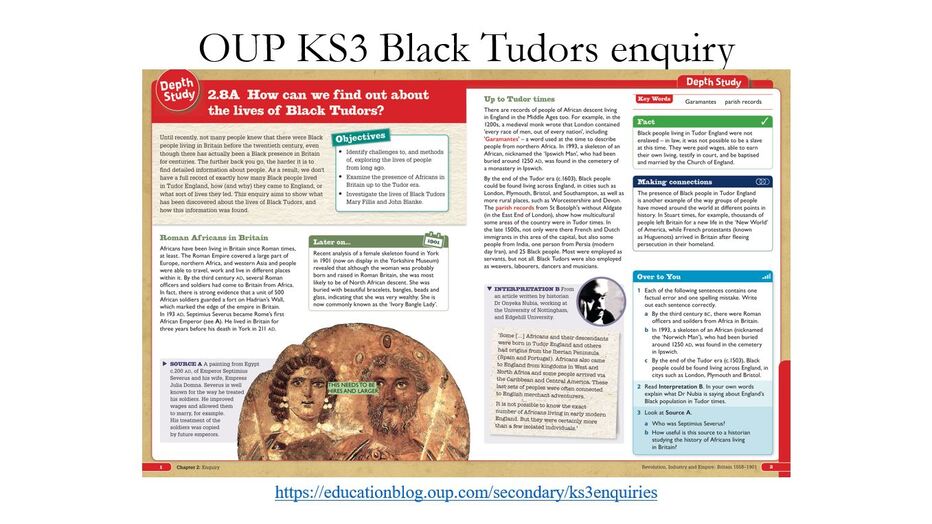 As in any curriculum change, there needs to be a long-term commitment and schools and teachers can play their part and we thank Miranda for sharing the following helpful suggestions to upskill and up-knowledge teaching of Black British History in the classroom:
With thanks to Miranda for her motivating and enlightening talk that made us all think about the endurance of Black British History and for sharing ways to teach and bring to life this significant part of history that can inform the present. By Jude Owens, PA to the Executive Team and Governance "When people feel safe to talk this becomes self-perpetuating and positive." More than a catchy course title, this training session part of our on-going Diversity, Equity and Inclusion work with Diverse Educators was set to be a life-affirming session for the SWIFT Central Team and Delivery Partnership Group. How do we empower everybody to ask questions, share views, and things that should have been said? Typical examples of Courageous Conversations include handling conflict, confronting a colleague, expressing an unpopular idea on a team, asking for a favour, saying no to a request for a favour, asking for a raise, or trying to have a conversation with someone who is avoiding you. Research shows that in particular, many women find such ‘courageous conversations’ to be challenging. Think of the language that betrays who can “get away” with certain behaviours. Men are labelled the boss and women as bossy. These mindsets are reflected in the workplace and how women have been conditioned. Too often, the premise of courageous conversations is associated with conflict, fills us with dread and we descend into a defensive, blame culture that magnifies the existing tension and struggle and becomes a negative scenario. Whereas we need to act in a neutral, open way, without bias and to show a willingness and openness to learn. The fear zone of hurting someone risks inhibiting us and we can worry more about having the courageous conversation than the act of doing it. We waste energy attempting to mind-read what people are thinking and feeling that boxes us in. Know your strengths and what you bring and learn to control yourself. Consider the power in having a conversation. No-one shies away from safeguarding conversations. It should be the same for a courageous conversation that whilst often difficult and necessary, when done effectively, it can have a dramatic impact on how we lead ourselves, the team and/or the organisation. It can be difficult to find a time to talk in a busy school and it is important to book in time and to reframe as part of the workplace culture that builds positive psychology and a collective commitment. But for many of us, we have to step out of our comfort zone to discuss a topic that can be emotionally charged and we fear an emotional response. Whilst we might seek to avoid such conversations, they can help to build an inclusive workplace and push through to the learning zone to learn about ourselves, our team and the wider culture and ultimately, to ensure growth. See Matthew Syed’s book, “Rebel Ideas” that asks if we are open to ideas and the importance of learning how to reframe and negotiate. For example, in asking for flexible working, or a salary raise. We need to build our confidence to build our competences as strategic intent and a framework of training. Intentional psychological safety should be for everyone in the workplace. The ideal reset opportunity is in September at the start of a new term, building in “contracting” for courageous conversations at a neutral and unemotional safe point. All staff should be trained. Not only the dominant, senior and more confident members of staff. Experience shows when all staff are trained, the best response is from operational staff who have never had a voice in the school. Sub cultures across an organisation need careful navigation. By building psychological safety in a school, all staff will have the courage to speak out and share how it will be received and processed with positive intent. Practically, this means creating a subtle and private space, especially in an open office and equally on the telephone. Tell the other person that you are in a confidential space to show mutual respect. There are many advantages of psychological safety (door open policy). Staff feel valued, and are more productive and creative with higher wellbeing, thriving and a feeling of belonging, leading to better staff retention. Energy is conserved as there is an agreed way of talking and less frustration, with more flexible working that is very positively mirrored in the classroom. The negatives of psychological safety (doors shut) are damaging to an organisation. It can result in high absence; staff have a limited sense of purpose and connection and disengagement of staff. When it comes to courageous conversations with parents and carers, it is not always possible to plan for what are often unexpected meetings. Understandably, a parent is emotionally attached to their child and might be defensive if they perceive the conversation to be a challenge. But it is encouraging that this generation of students seem to be more open to courageous conversations. Essentially, understand that we have the responsibility to raise the courageous conversations if an issue or something has happened. Pre-empt. But be aware that one conversation is not the same for everyone. Make the time for the conversation. Be intentional and think through and reiterate the key points. Listen actively and hear through it and do not take it personally and strive to be objective. With the Radical Candor model (Kim Scott) the balance is towards growth and to bring awareness to the person you are having the conversation with. “When you said this, it made me feel like this…” and join up the dots in the conversations. Part of the problem is letting someone behave badly. But if you have a courageous conversation, you can do it in a caring way, “I care about you so I am going to challenge you…” and this can disarm people in a positive way. Think how we modify ourselves to other people and our relationships and the use of language. This modifies from the early phase of a professional relationship in the opening interactions and evolves over time when you have a positive track record. Use a buddy as a sounding board. Then, if difficult situations arise you can leverage the relationship capital from your authenticity, credibility and integrity. Move from impulsion to intentional. With the Fierce Conversations model (Susan Scott), “Create an organizational culture where candor and curiosity are the expectation…Think passion, integrity, authenticity, collaboration. Think cultural transformation. Think leadership.” “Get curious rather than critical.” Part of coaching, reframe questions to how or what – not why. Meet in the middle and learn from it and learn some awareness from each other and tackle the challenge, contracting how to move forward. “It’s the conversations that we don’t have, that cause the biggest problems.” The key principles of fierce conversations are:
If you are good at regulating your emotions you can guide the other person to stay regulated too. Preparation before the courageous conversation is essential to anticipate how they might respond. For example, lesson observation feedback in the person's classroom. If it is good or bad, they will be in their own space. Use emotional intelligence of how and where they are sat in the classroom. Or book a phone call later to suit you both and use an out of office sign, and phones and emails off so that you can give your full attention. “The conversation is the relationship.” The impact of not having a fierce conversation can be the breakdown of employee relationships and a lack of respect for them and us and damaging the organisational/school culture. There can be a mismatch and an unhealthy dissonance culture between what they say and what they do and bad situations can fester. Learn also how to manage the emotional wake and the emotional wake of others. Useful sentence starters can allow time to process. “Am I hearing you correctly to reclarify?” “Can you tell me more..” “What I hear you saying is..” Remember the power of the pause and encouraging comments and always regulate yourself as how you respond will dictate how they respond. Do not hijack their story or interrupt. Do not play one-upmanship and minimise the difference or discount and explain away. Do not get defensive or take it personally or try to validate assumptions. Remember also, self-reflection after the conversation about what went well. A strong strategy is to build opportunities and routines into the way we work. For example, a mid-year appraisal and create an expectation as the norm. As deliberate practice courageous conversations can become the Code of Conduct and working proactively helps to make the workplace a psychologically safe place to work. “We make the weather in our own environment.” Radical candor = consistent behaviour. Proactive to the workplace culture.
Fierce conversation = to resolve something. Not all the time. Reactive to challenge something specific. We thank Diverse Educators lead, Hannah Wilson for guiding us through this empowering session on Courageous Conversations and reminding us of the value of a shared collective, close to our SWIFT heart founded on partnership. Report by Jude Owens, PA to the SWIFT Executive Team “Sometimes as a person of mixed race leaves you in the middle or left out completely.” 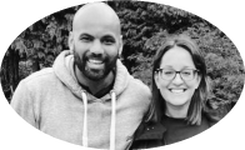 As part of our Diversity, Equity and Inclusion (DEI) work to raise awareness and continue the conversation about this important agenda, I spoke with Louise Jaunbocus-Cooper, co-founder of MixEd, a platform for educators (and others) to discuss race, racial identity and diversity. MixEd works closely with Diverse Educators, who are leading DEI training across our SWIFT partnership. Mixed heritage is the fastest growing ethnic group in the UK. Mixed race is currently the most under-represented ethnic group in leadership with only 1% of senior leaders of mixed heritage. Founded during the pandemic following the death of George Floyd, MixEd co-founder, Marcus Shepherd contacted Louise in response to her Tweets about her own mixed heritage. Louise has a White-British mother and Mauritian Muslim father and grew up in Oldham in the Northwest and engages in the religious and cultural aspects of her dual heritage – for example, celebrating Easter with her Mum and Eid with her Dad. Whereas, Marcus is a black man of White British and Ghanan heritage who has little contact with his Ghanan family and is immersed in his British family culture. Together, Louise and Marcus believed that they could do something to get their voices across. Exchanges ensued and MixEd as a platform was born that featured their own blogs and with an invitation to other guest bloggers to contribute. The website has evolved from mixed race to intersectionality, including religion and race and sexuality and race. 1. How do you envisage the continued role of education in opening up the conversation about mixed race? Both Louise and Marcus are senior school leaders and value the role of education in providing a space and an understanding about mixed identity. Louise is Deputy Headteacher at Wellington School, a 11 - 18 years school with Academy status in Timperley in Greater Manchester and Marcus is Regional Education Director for E-ACT. I believe it is always important to look at things from an educationalist’s perspective and to consider our outside work persona and how others are treated. Student voice is an essential part of this conversation in education and you can read a powerful blog on the website by Jordan a secondary student of mixed race, sadly, on the fringes of criminality who writes about his experiences and hopes. In my own school, we have looked at decolonisation of the curriculum that required a staff mindset change, beyond a departmental or teacher level as a culture shift about identity. The biggest misconception for me is around the misconception about who you are. I am known as “white passing” because I am still quite fair skinned despite my dual ethnicity that means it stays hidden. People sometimes say things to me - including casual Islamophobia - and do not realise that this is offensive to me. But because I feel that I do not fit into a neat ethnicity space because of the colour of my skin, it does not feel right to be offended. It is the opposite experience for Marcus, as people make misconceptions about his culture due to the colour of his skin and assumptions about his appearance of ethnicity. Assumptions can be based on what people cannot see, which makes it a unique experience for people of mixed race. However, it is significant to note that even people of mixed race are not a homogenous group. They are all very different and with very different lived experiences. I recall an incident when I was a child in McDonald’s in Rochdale with my Mum and brother, who is darker-skinned than me. A lady came up to my Mum and said “How lovely, you’ve got one dark and one white.” It was well-meaning, but clearly inappropriate and growing up in Oldham as a family we were used to overt racism. Part of our MixEd work is providing training in schools to support them on their journey – which starts from reviewing policy to staff training, to the curriculum and we are big on promoting student voice.
In our school, we have a Gender Equality Council who have led awareness campaigns on period poverty, sexism, and gender pronouns. Our Race Equality Council Year 8 students led a thought-provoking assembly on afro-textured hair and talked about the history of hair discrimination dating back to the Transatlantic slave trade and will be leading a future assembly on micro aggressions. Whilst the LGBTQIA+ Council has looked at gender pronouns and making schools safe for transgender students. “As Educationalists, you could say that we have the most important role to influence the future generation.” 2. Are you optimistic in our Black Lives Matter era? Yes, I am optimistic that education is proactive in the post-George Floyd Black Lives Matter sphere and has galvanised thinking. But we need to do more. A growing number of Schools and Multi Academy Trusts are approaching MixEd. So, there is lots of hope of positive change and young people are brilliant. However, I am mindful of the recent Met Police report and blatant racism that was very disheartening, which I believe has a lot to do with the institutional structures. I also worry about immigration rhetoric and racism in certain areas of the country that is polarising one group against another and is often used as a weapon against people. See the recent issues about immigrants in Liverpool. So, there is wider work to be done. 3. What do you consider to be the success (es) of Mix-Ed to date? Quite simply, but significantly, MixEd is a platform that amplifies the voices of people of mixed race and as part of our work, Marcus and I meet some amazing people who want to work with us and we are proud to be the trailblazers in this work. Our collaboration with Diverse Educators is another important space for us and we are grateful for the opportunities provided to us. 4. What are your personal gains in leading Mix-Ed? Huge! Marcus and I are “very, very proud on a personal level” of what we have created today that was conceived from a chance chat on Twitter. It still blows me away how many new wonderful people we meet who are passionate and engaged and want the same things as us and that we can help to make them feel safe. It also affirms a sense that the world is a good place – especially, if and when, you read the doom and gloom on social media. “It heartens me and keeps me going and we can only impact what we can impact.” 5. Looking to the future, what are your main aims for Mix-Ed? The big one is to allocate some more time to MixEd from next year. We will be relaunching the website and will be offering low-cost training to help retain and recruit minority ethnic staff to help support the recruitment crisis in the teaching profession; especially as so many people of mixed identity say that they do not see themselves represented on the staff body. We will also be offering a coaching model from September to coach Early Career Teachers and aspiring senior leaders. And finally, we want others to continue to join us and to feel safe in their mixed identity. We thank Louise and Marcus for sharing their experiences and for their ongoing MixEd work in providing a safe space for others of mixed ethnicity and identity and may it continue to be rewarding, as well as successful. Interview by Jude Owens, PA to the SWIFT Executive Team As part of our Diversity, Equity and Inclusion (DEI) commitment to creating a sense of belonging for everyone, SWIFT is working with Hannah Wilson, co-founder of Diverse Educators. Initially a grassroots network, Diverse Educators is now a training company working with all types of schools to support their DEI strategy and training needs, in the belief that schools are stronger, and can go further together, in collaboration with national and international organisations. VISION | Everyone is celebrated in every classroom in every school. MISSION | A collaborative community that celebrates the successes and amplifies stories of diverse people. VALUES | Promoting acceptance; increasing visibility; encouraging celebration; creating belonging and enabling learning. Diversity, Equity and Inclusion celebrates the nine Protected Characteristics identified by The Equality Act (2010) SWIFT is endeavouring to understand the needs of all the nine Protected Characteristics groups and seeks to improve a sense of belonging. As part of this pledge, we have created consistent branding and are creating new representative artwork and photo images as improved imagery on our website and socials that and humanises our community. DEI should be about celebration, not tolerance (as in the hero image below): For Diverse Educators, DEI is about the three Cs: Consciousness, Confidence and Competence. Diverse Educators will be providing training and support for SWIFT, our partners and schools; incorporating the development of our DEI Policy and Procedures, strategy and vision and we are embedding DEI through a partnership committee to leverage insights and diversify perspectives. Improving our DEI awareness and how we use inclusive language will increase our confidence and enable us to increase our competence to share within our team, and also help us to raise awareness of our shared goals and approaches with everyone we work with: our partners, school leaders and teachers, Early Career Teachers, Mentors, trainers and trainees. We want to breakdown any barriers so that everyone feels included. For our training events we are seeking to make reasonable adjustments to ensure accessibility and we have been striving to increase the diversity of speakers at our SWIFT conferences, Curriculum and Leadership Forums and CPD events. Last Autumn Term, we provided menopause training and maternity / paternity training and established a SWIFT Equality & Diversity Professional Community led by Ruhaina Alford, Executive Headteacher of The Carey Federation (find more information about the April meeting here | free to SWIFT members and £25 for other colleagues). We are reviewing our staff recruitment and retention policies so that everyone feels welcomed and a sense of belonging with equitable opportunities for career advancement. The number of people being promoted in education to senior leader positions is low, especially here in the South West, particularly for women and black people and as part of our initial teacher training responsibilities, we will be putting DEI at the centre of our new SWIFT SCITT. Ultimately, at the heart of our affirming, validating and celebrating diversity, equity and inclusion, we understand that this will positively impact on our pupils and young people and we welcome news of any interesting DEI work undertaken by our partners. 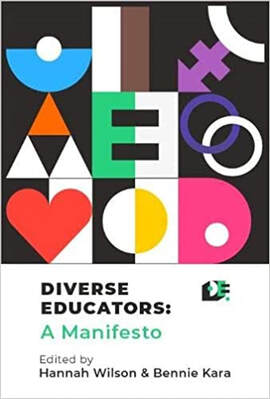 More Information and Resources To support the Diversity, Equity and Inclusion journey in your school, you can find lots of free resources on the Diverse Educators website, including a toolkit, a DEI Directory organised by the nine Protected Characteristics, and key words and acronyms. When scheduling events in your organisation, you can find a list of awareness and celebration days/weeks/months of religious and cultural significance. Listen to the #DiverseEd Podcast in which co-hosts Nick Kitchener-Bentley and Yamina Bibi interview a contributor from each of the 10 chapters of “Diverse Educators: A Manifesto.” For regular news and views, read the Diverse Educators blog. Report by Jude Owens, PA to the SWIFT Executive Team |
SWIFT News
|
SPONSORED BY
Join us, be a part of our SWIFT community |
© COPYRIGHT 2022 SOUTH WEST INSTITUTE FOR TEACHING SWIFT. ALL RIGHTS RESERVED | Website by brightblueC
VIEW OUR PRIVACY NOTICES | VIEW OUR COURSE T&CS
VIEW OUR PRIVACY NOTICES | VIEW OUR COURSE T&CS































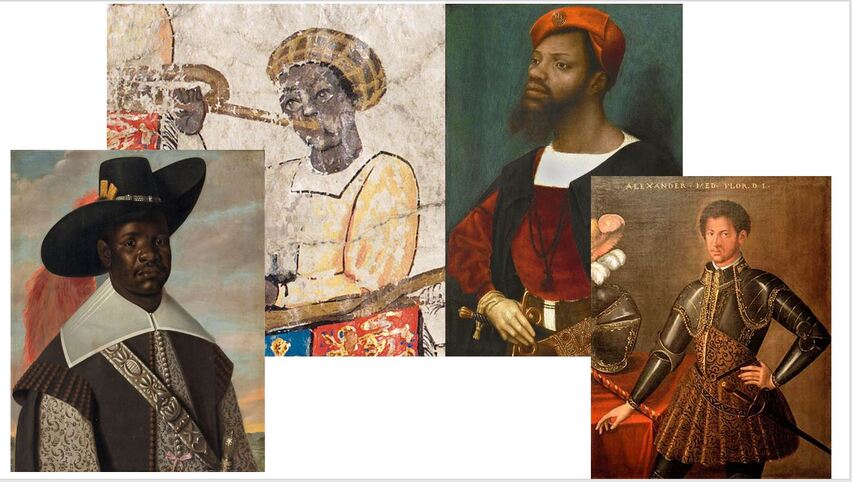
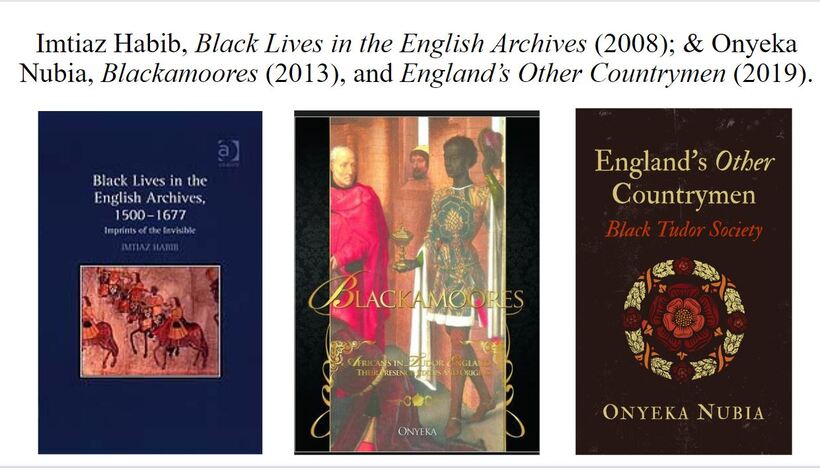
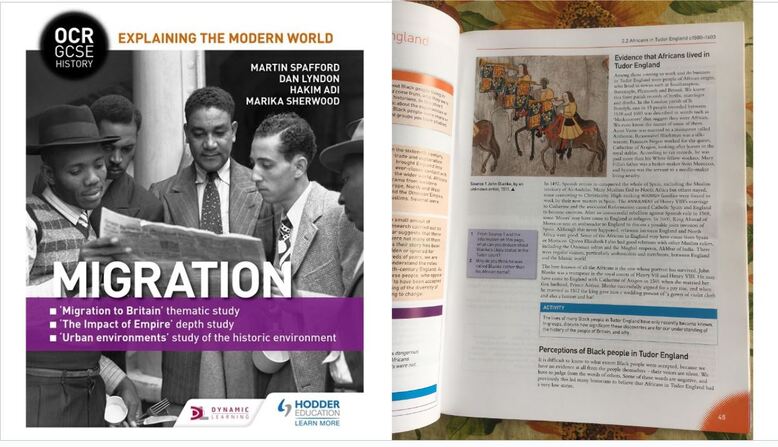
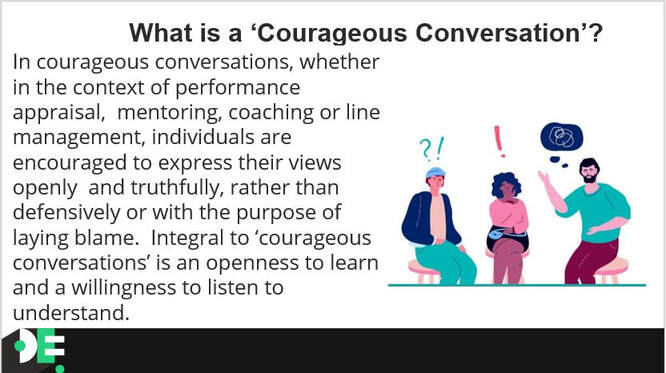
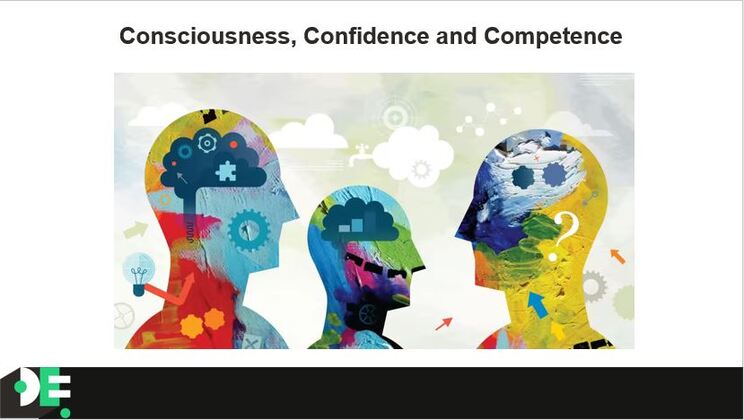
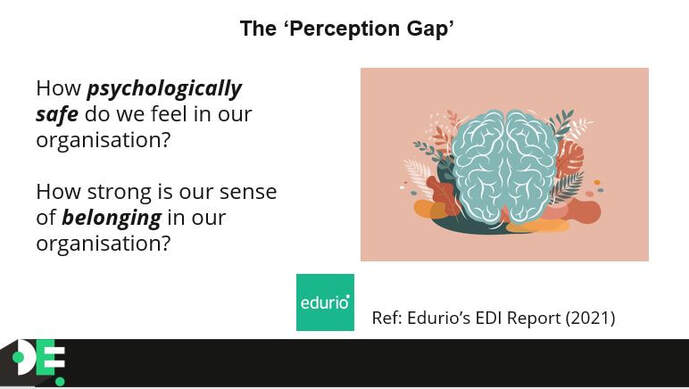

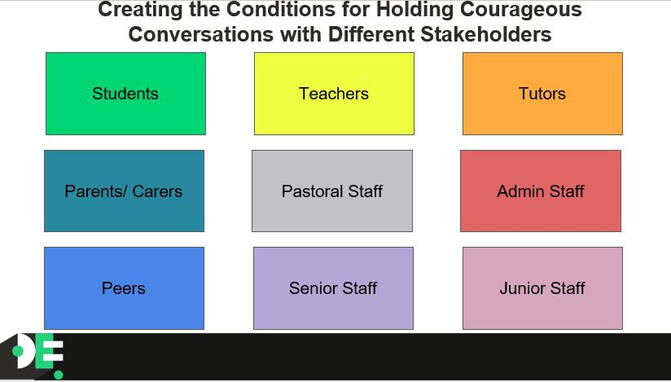
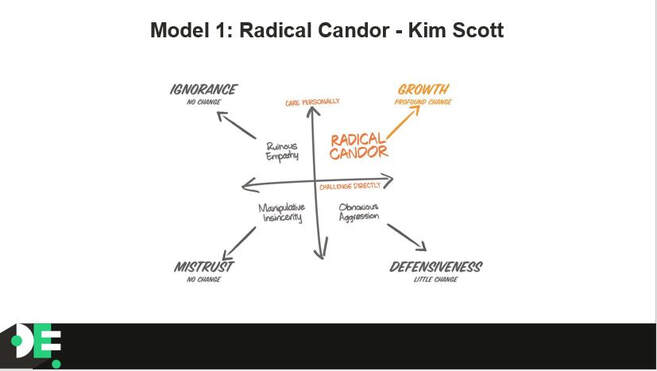
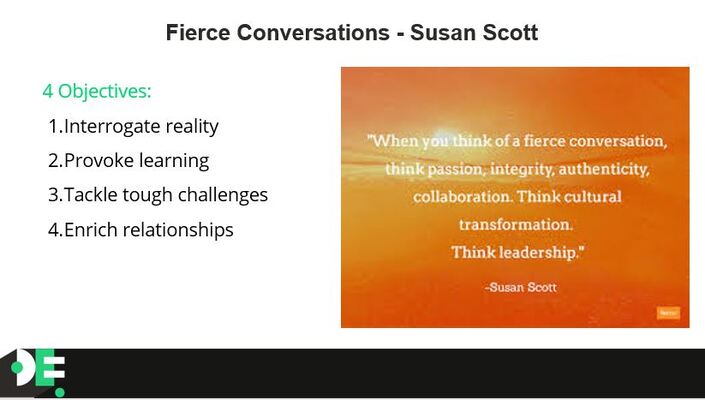
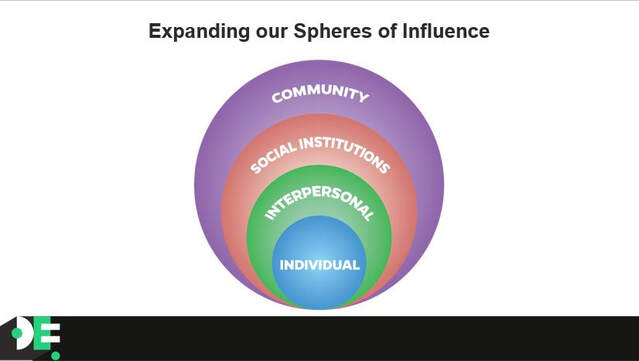
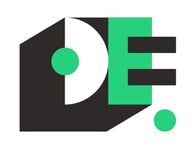
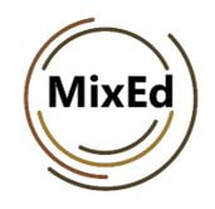
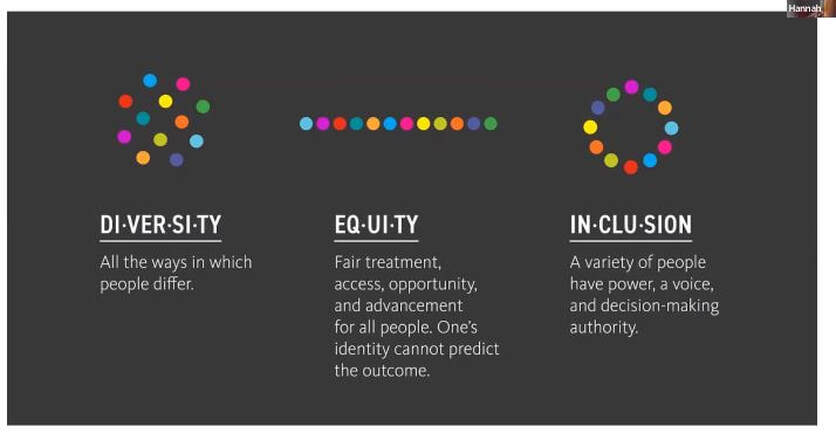
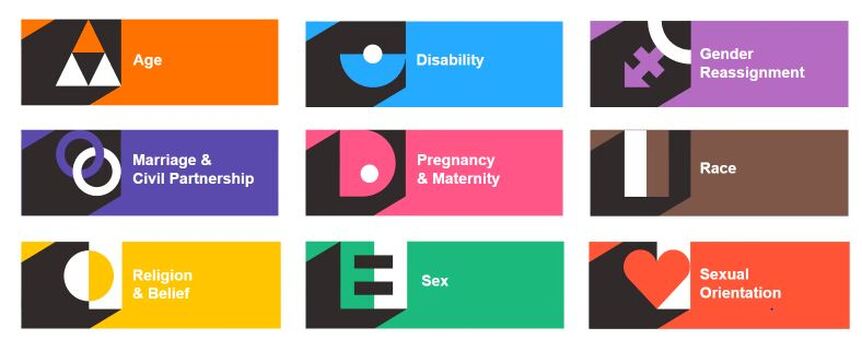
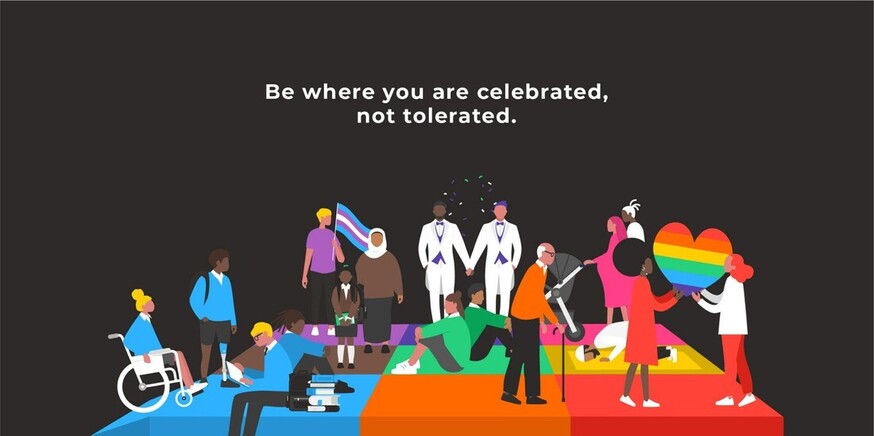
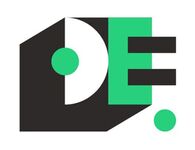
 RSS Feed
RSS Feed





